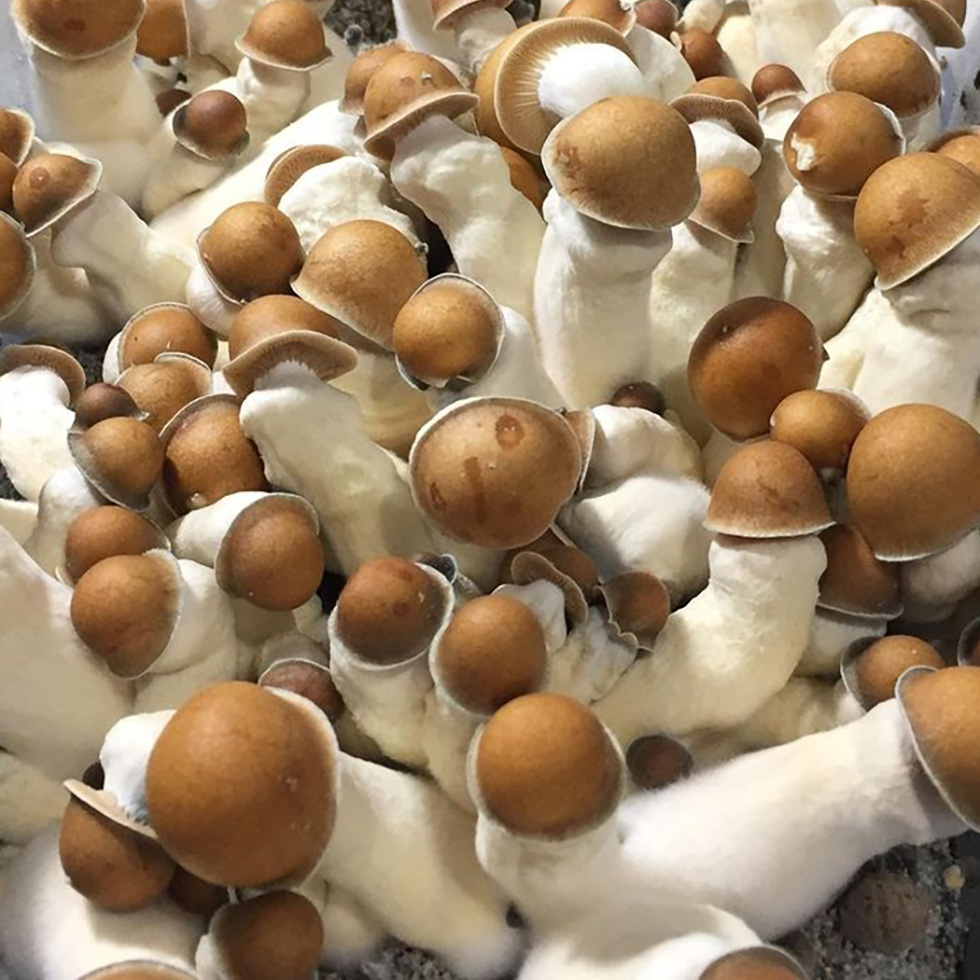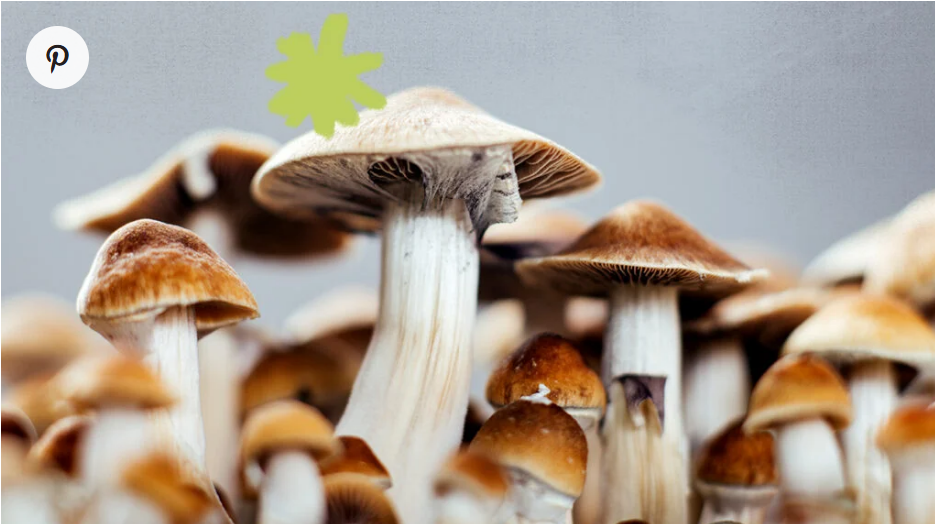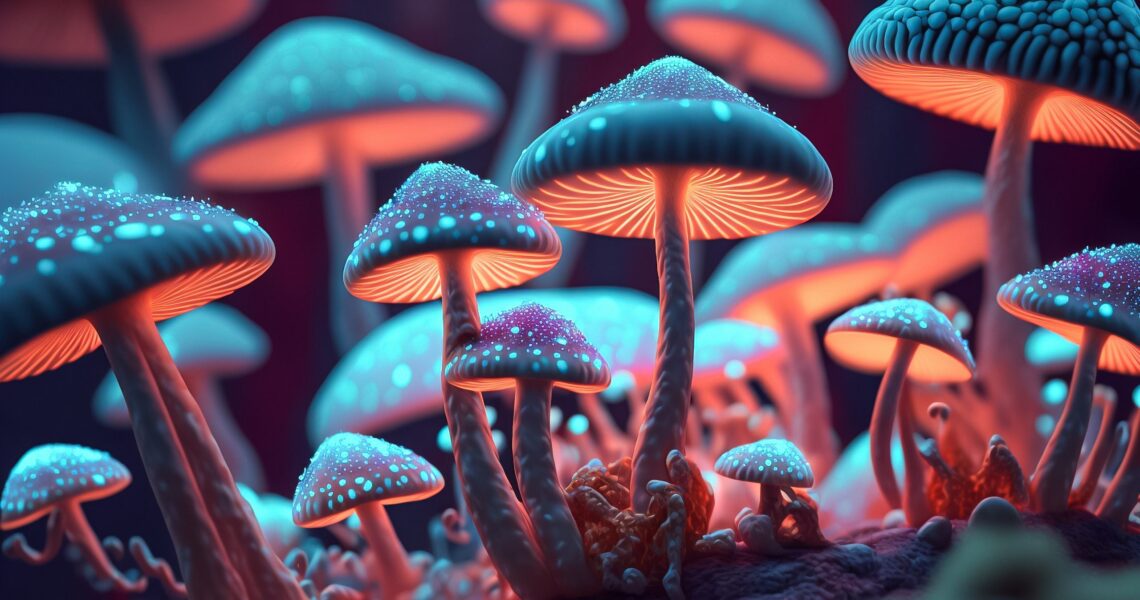Exploring the Magic: The History and Benefits of Psilocybin Mushrooms
December 23, 2024Exploring the Magic: The History and Benefits of Psilocybin Mushrooms
Psilocybin mushrooms, often referred to as “magic mushrooms,” are an extraordinary gift of nature. These fungi have captivated humanity for centuries, not only for their unique psychoactive properties but also for their profound cultural, spiritual, and therapeutic significance. In this blog, we will take a deep dive into the origins of magic mushrooms, their traditional uses, and the modern therapeutic potential they hold for mental health and well-being.

Order now from Bubba Factory and unlock the transformative power of one of nature’s most potent gifts.
The Origins of Psilocybin Mushrooms
Magic mushrooms are primarily found in the Psilocybe genus, with Psilocybe cubensis being one of the most widely recognized species. These fungi naturally grow in tropical and subtropical regions across the globe, thriving in nutrient-rich environments such as cow pastures and forest floors. Their psychoactive properties come from the compound psilocybin, which is converted into psilocin in the human body, creating mind-altering effects.
Archaeological Evidence The use of psilocybin mushrooms dates back thousands of years. Archaeological evidence reveals their presence in ancient Mesoamerican cultures, where they were integral to religious rituals and ceremonies. Prehistoric rock art in the Sahara Desert, dating back nearly 9,000 years, depicts mushroom-like figures, suggesting an early understanding of their spiritual significance.
Cultural Roots Indigenous groups, particularly in Central and South America, revered psilocybin mushrooms as sacred tools for connecting with the divine. The Aztecs referred to them as “teonanácatl,” or “flesh of the gods,” and used them in rituals to seek guidance, healing, and transcendence. These practices were suppressed during colonization but persisted underground in some regions.


Traditional Uses of Magic Mushrooms
Spiritual and Religious Practices For many indigenous communities, psilocybin mushrooms were a bridge between the physical and spiritual realms. Shamans and healers used them to facilitate visions, communicate with spirits, and gain insight into complex issues. These ceremonies were often accompanied by chanting, music, and other rituals to enhance the experience.
Healing and Medicine Traditional healers believed in the therapeutic properties of magic mushrooms, using them to treat a range of physical and psychological ailments. They were thought to cleanse the soul, alleviate stress, and provide clarity in times of emotional turmoil.
Rites of Passage Magic mushrooms played a role in initiation ceremonies, marking significant life transitions. Consuming these fungi was seen as a way to gain wisdom and maturity, often under the guidance of an elder or spiritual leader.
Rediscovery and Modern Research
Magic mushrooms remained relatively obscure in the Western world until the mid-20th century when ethnomycologist R. Gordon Wasson published an account of his experiences with psilocybin mushrooms in Mexico. This sparked interest among researchers and the public, leading to a surge in scientific studies.
The Psychedelic Era The 1960s saw a rise in the popularity of psilocybin mushrooms, driven by counterculture movements and the work of pioneers like Timothy Leary and Aldous Huxley. However, their association with the counterculture led to their criminalization in many countries, stalling research for decades.
Resurgence in Research In recent years, there has been a renaissance in psilocybin research. Scientists are exploring its potential to address mental health challenges, backed by rigorous clinical trials and advanced neuroimaging techniques.
The Therapeutic Potential of Psilocybin Mushrooms
Psilocybin mushrooms have shown promise in treating a variety of mental health conditions, offering hope for those who have not found relief through conventional therapies. Here are some of their most notable therapeutic applications:
1. Depression and Anxiety Psilocybin has demonstrated efficacy in alleviating symptoms of depression and anxiety, particularly in individuals with treatment-resistant conditions. Studies suggest that psilocybin promotes neuroplasticity, helping the brain form new neural connections and overcome negative thought patterns.
2. PTSD and Trauma Psilocybin-assisted therapy may help individuals process and integrate traumatic experiences. By disrupting the default mode network (DMN) in the brain, psilocybin allows users to approach their trauma from a new perspective, fostering healing and acceptance.
3. Addiction Treatment Research indicates that psilocybin can reduce cravings and withdrawal symptoms in individuals struggling with substance use disorders. It has been particularly effective in helping people quit smoking and overcome alcohol dependence.
4. End-of-Life Distress Terminally ill patients often experience existential anxiety and depression. Psilocybin therapy has been shown to provide comfort, helping patients come to terms with their mortality and find peace.
The Science Behind Psilocybin’s Effects
Neuroplasticity and Brain Connectivity Psilocybin’s ability to enhance neuroplasticity—the brain’s capacity to form new neural pathways—is a key factor in its therapeutic potential. By increasing connectivity between different brain regions, psilocybin fosters creativity, problem-solving, and emotional resilience.
Disruption of the Default Mode Network (DMN) The DMN is associated with self-referential thoughts and rumination. Psilocybin temporarily reduces DMN activity, allowing individuals to break free from rigid thinking patterns and experience a sense of unity and interconnectedness.
Microdosing: A Subtle Approach to Psilocybin
Microdosing involves taking sub-perceptual doses of psilocybin to enhance focus, creativity, and mood without inducing a full psychedelic experience. This practice has gained popularity among professionals and creatives seeking to optimize their performance.
Benefits of Microdosing
- Enhanced productivity and concentration
- Improved emotional well-being
- Increased creativity and problem-solving abilities
Challenges and Considerations While anecdotal reports are promising, more research is needed to understand the long-term effects of microdosing. It is essential to approach this practice with caution and adhere to local laws.
Legal and Ethical Considerations
The legal status of psilocybin mushrooms varies worldwide. While they are decriminalized or legalized in some regions, they remain illegal in many countries. Advocates argue for their therapeutic potential and call for policies that prioritize harm reduction and accessibility.
Ethical Use As interest in psilocybin grows, it is crucial to respect its cultural roots and use it responsibly. Ethical considerations include supporting indigenous communities, avoiding overharvesting, and promoting safe practices.
The Future of Psilocybin Mushrooms
The ongoing research into psilocybin’s therapeutic applications has the potential to revolutionize mental health care. As public perception shifts and regulatory frameworks evolve, psilocybin mushrooms may become a mainstream option for treating a wide range of conditions.
Key Developments to Watch
- Clinical trials exploring psilocybin’s efficacy for various disorders
- Efforts to decriminalize and regulate psilocybin use
- Innovations in psychedelic-assisted therapy
Conclusion
Psilocybin mushrooms are more than just a recreational substance; they are a tool for healing, self-discovery, and spiritual growth. From their ancient roots in indigenous cultures to their modern applications in mental health therapy, magic mushrooms continue to unlock the mysteries of the human mind and offer hope for a brighter future.
If you are curious about exploring the potential of psilocybin mushrooms, always prioritize safety, legality, and respect for their cultural heritage. The journey with magic mushrooms is one of wonder and transformation, a testament to the profound power of nature.

